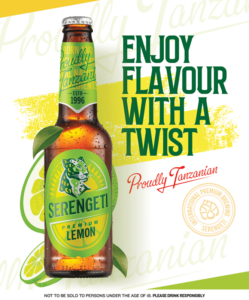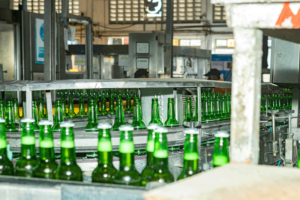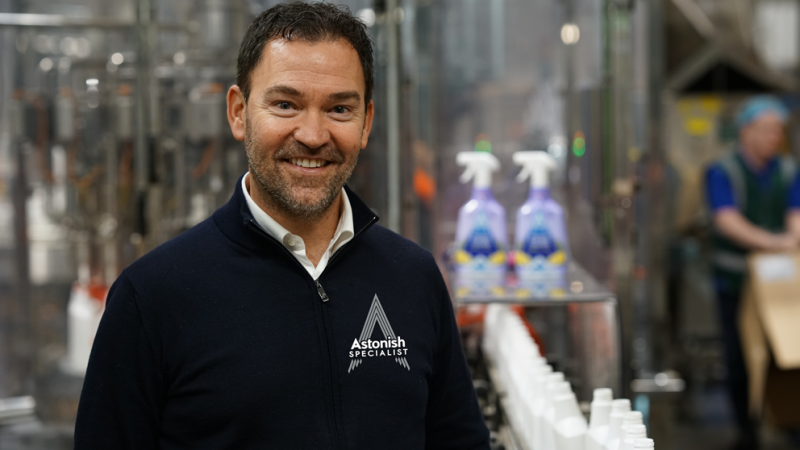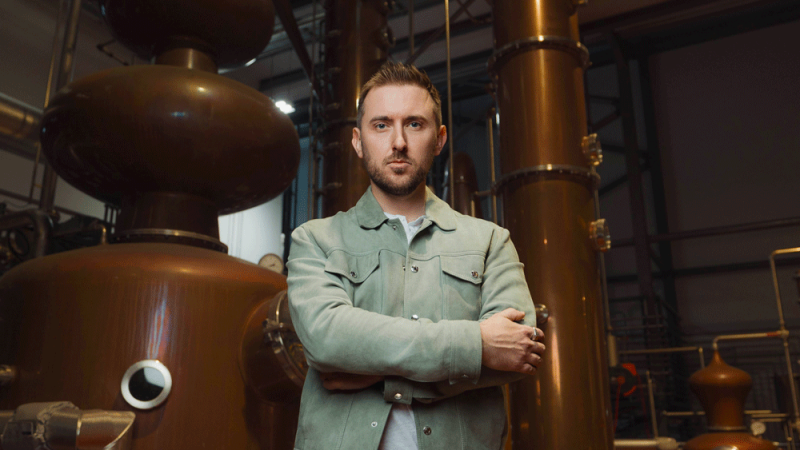Established in 1988, Serengeti Breweries remains a young, dynamic and vibrant organisation that is a leading player in the total beverage alcohol market of Tanzania. Among its brands is Serengeti Lager, which the firm began manufacturing in 1996 as the first of a stable of brands it brought to the Tanzanian market.
But Serengeti Breweries Limited is also a subsidiary of Diageo, the world’s leading premium alcoholic beverage company, giving Serengeti access to a global pool of resources and expertise that has reinforced its strong position in Tanzania’s market. Serengeti has been Tanzania’s gateway to brands such as Johnny Walker, Baileys, Guinness, Singleton and Captain Morgan, operating from its three local manufacturing sites across the country.
“We are proud of the support we have received from Tanzania since we launched,” says Dr Obinna Anyalebechi, the Managing Director of Serengeti Breweries. “Serengeti beer has become the largest bottled beer brand in East Africa by volume, and we are proud of our achievements & excited about the support our country has given us.”
That support is important to Serengeti Breweries because, although it is part of an international brand in the form of the Diageo group, it is a proudly Tanzanian business.
“We have invested heavily in boosting local supply chain capabilities and capacity, to produce beers, spirits and ready-to-drink beverages locally while sourcing 70% of our raw materials within the country,” Anyalebechi explains. “Our impact on the value chain is significant. We purchase more than 17,000 metric tons of grains from local farmers annually, injecting billions of Tanzanian shillings into the local economy.”
The business uses its platform to invest in the local economy, while also empowering women.
“Our youngest brewery, in Moshi also houses our state-of-the-art spirits manufacturing line which is operated entirely by an all-female crew, which we are very proud of,” Anyalebechi points out. “It emphasises our commitment to empowering women, and that is also reflected in our retention and recruitment policies. We have also contributed billions in tax revenue to the government annually, maintaining our status as a top ten taxpayer in Tanzania.”
 A Values-Driven Agenda
A Values-Driven Agenda
In its mission to drive and invest in Tanzania, Serengeti Breweries differentiates itself through four main factors.
The first of these is its consumer-first philosophy.
“This is what drives our innovation agenda. One of the things people say about Serengeti is that we have really transformed the local market,” Anyalebechi tells us. “When we launched Serengeti Lite, it transformed the ‘Lite’ segment of the market, and it has had a major impact on the alcoholic beverages market in Tanzania. Very recently, we have introduced Serengeti Premium Lemon into the market, and it has been received very strongly by consumers. We continuously strive to innovate around what consumers want, and this has led to the growth of our company.”
That innovation agenda has informed Serengeti’s robust portfolio of brands which straddles a range of market segments and price points, including the whiskey, vodka, rum, liqueur, and gin markets as well as lagers and stouts.
“We have different brands for different price points, with a variable portfolio that appeals to different consumer needs and occasions,” Anyalebechi says.
As well as the firm’s Tanzanian heritage, Anyalebechi is also proud of the company’s role as part of the Diageo network.
“It is a leading player globally, so we get extensive support with regard to processes, best practice, capability interventions and resources that help us remain strong and relevant in the market,” he says.
But first and foremost, Anyalebechi is proud of Serengeti Breweries’ people.
“We pride ourselves on our serengetizens, as we call them,” he tells us. “They are bound by a set of six behavioural guidelines that drive the culture in our organisation. It sets us apart and makes us unique in the marketplace.”
The Serengetizens
How Serengeti Breweries attracts, retains and invests in its people has remained core to the business’s success.
“We try to ensure that our diversity and inclusion agenda is strengthened through our recruitment and retention practices,” Anyalebechi emphasises. “We strive very hard, particularly in places like our supply chain, to drive that agenda even in places where most organisations can struggle with diversity.”
To that end, Serengeti Breweries has implemented a STEM program that focuses on female graduates from science-based university courses.
“We attracted them into our organisation through our recruitment process and put them on an apprenticeship program for about a year. They are trained and deployed to various points in our supply chain organisation and empowered with the requisite skills,” he explains. “All of these graduates were retained within our organisation and went on to be strong members of our supply chain business.”
Serengeti Breweries is an Equal Employer organisation that does not discriminate on religion, gender, or disability. But Anyalebechi makes sure that it goes further than that, ensuring a 50/50 gender ratio for applicants shortlisted for any job advertised and bearing in mind gender balance and inclusivity in its selection criteria.
Once people become part of the Serengeti Breweries family, it invests in them further, using platforms like employee resource groups to keep people connected, engaged, and motivated.
“Our Spirited Women Network is a platform specifically curated for female employees where they can rally together to inspire themselves and talk about topics that interest them, thereby creating opportunities for capability interventions and empowerment,” Anyalebechi says. “We are empowering people with the skills that will help them excel in their job while striving to ensure that they are not disadvantaged from a remuneration standpoint.”
 A Tanzanian Future
A Tanzanian Future
With that team behind them, there are great things ahead for Serengeti Breweries.
“The future is exciting for us as a leading alcoholic beverage player in Tanzania,” Anyalebechi tells us. “The outlook in Tanzania is very positive. By 2050 we are looking at the population doubling, when you look at GDP growth rates, Tanzania is a leading light in sub-Saharan Africa. We are a top performer and that will trickle down, leading to more disposable income for consumers. We are already seeing that as the market premiumizes.”
At the same time, the Tanzanian government is on a mission to restructure the economy with tourism featuring strongly in their strategy, with the goal of attracting 10 million tourists by 2030, with strong investment in infrastructure taking place to encourage that.
But Serengeti Breweries is also looking at what it can do to help Tanzania, paying close attention to the impact it has on its communities. Globally, Diageo launched a sustainability agenda called Society 2030: Spirit of Progress, a ten-year action plan to help create a more inclusive and sustainable world and the team at Serengeti are playing their part to actualise that strategy.
“It includes a number of different pillars like championing inclusion and diversity, promoting positive drinking and preserving water for life,” Anyalebechi says. “In terms of our water stewardship, we’ve invested in ensuring we use less water internally in how we make our products. Also, in Tanzania we have implemented 26 water projects providing water to over 2 million people. This ensures that we replenish the water we use in our supply chain process. The committees set up to manage those water projects are gender balanced, empowering rural women.”
Anyalebechi is also proud of what Serengeti Breweries has achieved with its intervention to tackle underage drinking through ‘Smashed’, an educational theatre based programme aimed at empowering Tanzanian youths with the knowledge and skills to make responsible choices around alcohol consumption.
“We really want people to drink responsibly and only when they come of age and only if they choose to – not because of peer pressure or any other influence,” Anyalebechi says.
But Serengeti Breweries’ investments in communities also go all the way to the other end of the supply chain, to the rural areas where it sources the grains for its beer.
“We find people in these areas who want to pursue academic studies in agri-related fields,” Anyalebechi says. “We have supported over 300 beneficiaries through our agribusiness scholarship program, also ensuring a 50% gender balance by including women and people with disabilities while supporting farmers and teaching them about regenerative agriculture practices to maximise their yield and increase their profits.”
With Serengeti Breweries already working with over 500 farmers to source the different grains it uses, that points to a big impact for the future.








